Published: april 29, 2010; Since When Is Iran a Champion for Women’s Rights?
By Anne Bayefsky,
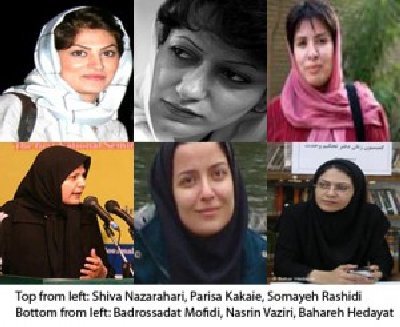
Numerous women’s rights campaigners, female journalists and relatives are being arrested and persecuted as authorities in the Islamic Republic of Iran attempt to repress masses of Iranians from advocating for their civil rights: Dr. Nooshin Ebadi, the sister of Nobel Peace Laureate Shirin Ebadi, Atieh Yousefi, Parisa Kakaie, Bahareh Hedayat, Zohre Tonkaboni, Mahin Fahimi, Shiva Nazarahari, Somayeh Rashidi, Maryam Zia, Mansoureh Shojaie, Badrossadat Mofidi, Nasrin Vaziri, Mahsa Hekmat, Layla and Sara Tavasoli, Azar Mansouri, Niloufar Hashemi Azar, Atefeh Nabavi and Shabnam Maddadzad. (iranhumanrights.org, january 05, 2010)
How could a country that stones women to death for adultery possibly be chosen to serve in a leadership role on the U.N.’s Commission on the Status of Women?
The United Nations Economic and Social Council elected Iran to serve a four-year term — beginning in 2011 — on the Commission on the Status of Women (CSW). The U.N. calls the Commission “the principal global policy-making body” on women’s rights and claims it is “dedicated exclusively to gender equality and advancement of women.” Yet Iran was elected by acclamation. It was one of only two candidates for two slots allocated to the Asian regional bloc – in other words, a fixed slate and a done deal.
Among other Iranian qualifications to serve in a leadership role in advancing the rights of women, is the country’s criminal code, which includes punishments like burying women from the waist down and stoning them to death for adultery.
The 2009 U.S. State Department report on Iran outlines other highlights of Iran’s women’s rights credentials. For instance, “spousal rape is not illegal” and when it comes to any other kind of rape “most rape victims did not report the crime to authorities because they feared…punishment for having been raped…Four male witnesses or three men and two women are required for conviction. A woman or man found making a false accusation of rape is subject to 80 lashes.”
Other features of Iran’s legal system, according to the State Department, include: “a man may escape punishment for killing a wife caught in the act of adultery if he is certain she was a consenting partner….[I]n 2008, 50 honor killings were reported during a seven-month period…” In general, “the testimony of two women is equal to that of one man.” Moreover, “a woman has the right to divorce only if her husband signs a contract granting that right, cannot provide for his family, or is a drug addict, insane, or impotent. A husband was not required to cite a reason for divorcing his wife.”
As USA Today has reported, women have borne the brunt of Iran’s crackdown on civil liberties. Laws permit polygamy, employment laws favor men, and family laws entitle women to only half the inheritance of a man.
In an effort to prevent Iran’s election to the Commission, the National Iranian American Council reported prior to the meeting: “in the past year, Iran…has charged women who were seeking equality in the social sphere…with threatening national security…Its prison guards have beaten, tortured, sexually assaulted and raped female and male civil rights protesters…In universities…the government is now banning women from key areas of study. Childcare centers are being shut down to hamper women’s ability to work…Women’s publications that addressed gender equality have been shut down. The regime is attempting to erase decades of struggle and progress.”
None of that made the slightest difference to the U.N. bosses. The Commission on the Status of Women was established in 1946 with the usual stated lofty goals. CSW was charged with “promoting women’s rights” and making “recommendations on urgent problems requiring immediate attention in the field of women’s rights.” The forty-five member states meet annually at U.N. headquarters in New York, boasts the U.N. website, to “identify challenges, set global standards and formulate concrete policies to promote gender equality and advancement of women worldwide.”
Having welcomed Iran into its exclusive club with open arms, the challenges facing Iranian women will obviously not be on the CSW agenda any time in the future. It should be noted that the likelihood of CSW caring one whit about the fate of Iranian women was remote. For years the CSW has only ever adopted one resolution naming any country for violating women’s rights — you guessed it – Palestinian women’s rights allegedly violated by Israel. The Commission is “gravely concerned” about Israeli violations of Palestinian rights. The right to life of Palestinian women and girls subject to honor killings, coerced into becoming suicide bombers or child soldiers at the hands of non-Israelis somehow has never made it on to their radar screen. And the same is true of the rights of women and girls violated by any other specific state on earth but Israel.
Along with Iran, other human rights stalwarts elected to the Commission yesterday were the Democratic Republic of the Congo, Liberia and Zimbabwe. They will join current CSW members and human rights enthusiasts like Belarus, China, Cuba, and Libya.
Iran’s election to the leading U.N women’s rights agency indicates two things. First is the low regard held for women’s rights on the U.N.’s list of priorities. Iran had originally wanted to become a member of the U.N. Human Rights Council but various players decided that Iranian membership might be even more embarrassing than current HRC members and U.N. human rights authority figures like Saudi Arabia, China, Cuba, Angola, Egypt, and Krygyzstan. Women’s rights were the consolation prize. Second is the continuing muscle of the Organization of the Islamic Conference at the U.N. Nobody challenged Iran’s entitlement to membership on at least one major rights body. Nobody dared to.
This is another example of just one more U.N. body created to do one thing and now doing the opposite, for which American taxpayers foot 22% of the bill. And it will continue unless those with their hands on the spigot in Congress finally decide to turn off the tap.
About the author,
Anne Bayefsky is a senior fellow with Hudson Institute. In January 2003 she launched www.bayefsky.com, a major human rights website dedicated to enhancing the implementation of the human rights legal standards of the United Nations. She is a member of the International Law Association Committee on Human Rights Law and Practice. She is the Editor-in-Chief of the series “Refugees and Human Rights”, published by Brill. She holds a B.A., M.A. and LL.B. from the University of Toronto and an M.Litt. from Oxford University. She is a barrister and solicitor of the Ontario Bar. Bayefsky is a frequent contributor to the editorial pages of newspapers and periodicals, and the author or editor of several books.



 RSS
RSS


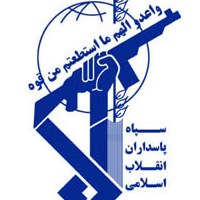

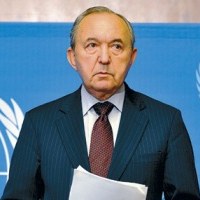
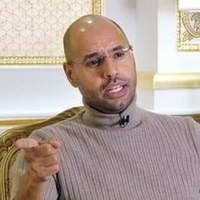
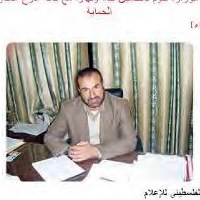




Since When Is Iran a Champion for Women’s Rights? #iran #islam #un http://j.mp/8X0gvv
RT @CrethiPlethi: Since When Is Iran a Champion for Women’s Rights? #iran #islam #un http://j.mp/8X0gvv
[…] Quote: Originally Posted by Kalam Quote: Originally Posted by jeffrockit Quote: Originally Posted by Kalam Lots of girls like Hizbullah. The hypocrisy would be almost laughable if it were not so sad. Women that support groups that degrade, and oppress women. Assumptions are dangerous. After clearing a checkpoint with armed guards, I visited Al Manar's high tech offices. The state of the art facilities included an extensive video archives/library, modern recording studios, sound booths and edit bays. In the Green Room I spoke to Sheikh Khoury Noor Ad Dine of the Hezbollah Political Council. He denied that the TV station committed atrocities or waged war on civilians. In fact, a large percentage of Al Manar employees are female. "Hezbollah differs from many Islamic groups in our treatment of women. We believe women have the ability like men to participate in all parts of life." From its founding in the 1980s, Hezbollah women have headed education, medical and social service organizations. Most recently Hezbollah nominated several women to run in the Lebanese elections. It named Wafa Hoteit as a chief of Al Noor Radio (also recently bombed), and promoted 37-year-old Rima Fakhry to its highest ruling body, the Hezbollah Political Council. Part of Fakhry's duties include interpreting Islamic feminism in Sharia law for the Committee for Political Analysis. Free speech marked for death Not an assumption, just fact. And I quote: "After interviewing Hezbollah women activists in the 1990s, Maria Holt wrote: "In the view of the women of Hizballah, women are accorded a strong role in society. They are permitted to acquire education, to work, to become leaders, and to have a political input. At the same time, however, a woman must not attempt to usurp the position of men in the society." In Hizballah, "women are still excluded from the centers of power and accorded a status secondary to that of men." (Holt, pp. 187, 189) threewayfight: Further thoughts on Hezbollah And still more "assumptions": Since When Is Iran a Champion for Women’s Rights? | Middle East Affairs Information Center | A… […]